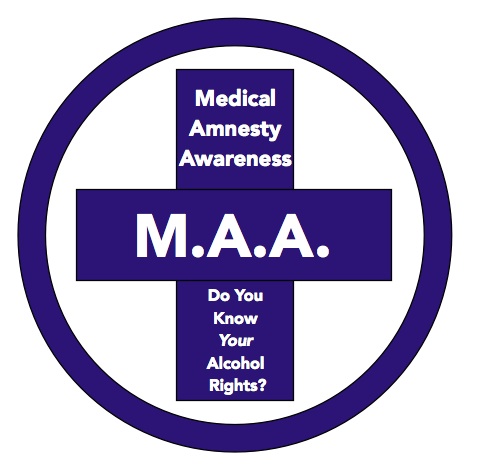The University of Michigan’s Central Student Government recently passed a resolution supporting broader medical amnesty protections without a single “no” vote.

Medical amnesty policies allow individuals in substance-related emergency situations to call for help for themselves or for friends without fear of punishment. The resolution, drafted and presented by the Law Students for Sensible Drug Policy, in collaboration with the undergraduate chapter of Students for Sensible Drug Policy, calls on the university to broaden its medical amnesty policies beyond the current statewide laws, which are limited to alcohol and minors overdosing on prescription medications.
While Central Student Government does not have the power to change these policies itself, the passage of this resolution on medical amnesty demonstrates to administrators that students are concerned about their health and the health of their peers. If the University of Michigan were to heed the call of Central Student Government, it would be joining more than 200 colleges and universities around the country who already have broad medical amnesty policies.
Beyond the university community, the students who organized the resolution hope that that the support of the students at the University of Michigan will help to push for a statewide medical amnesty legislation. The ultimate goal would be to pass a bill in Lansing that is similar to the recently passed comprehensive bill in Georgia. The Georgia bill, which is often upheld as the “gold standard” of medical amnesty, includes provisions to increase access to naloxone (the standard treatment for opioid overdose) in addition to offering broad immunity for those experiencing a medical emergency.
The recent support on campus for harm reduction policies, including medical amnesty, comes out of the publicity of the opiate crisis that has resulted in numerous overdose deaths of young people in the Washtenaw county area and beyond. While drug related medical emergencies are not a new phenomenon, the recent attention received by the health crises is. In this respect, student and community activists alike are hoping to finally have the support that is needed for a comprehensive medical amnesty law.
Such a law would benefit both individuals and communities in the state of Michigan, while also reducing the stigma attached to seeking help for drug abuse. Often, individuals who most need help are reluctant to call for medical help in emergencies or to voluntarily seek treatment for fear of prosecution or social stigma.
For the University of Michigan community, the need for broader medical amnesty laws and increased awareness about overdoses hit home with untimely death of Josh Levine. Levine, a University of Michigan graduate, passed away after using a mixture of Adderall and alcohol. Since then, his mother has worked to reach out to young people to explain her son’s tragedy and the dangers of mixing drugs. Reid Murdoch, the Executive Director of Las Students for Sensible Drug Policy, told the Michigan Review “As illustrated by the untimely death of recent U-M grad Josh Levine, drug and alcohol-related medical emergencies are a real public health concern for the U-M community.”
Without a broad medical amnesty policy in place, students will remain at risk and in fear of calling for help when they are in need.
While law enforcement officers on campus and in Ann Arbor often remind students that they generally do not charge students involved with medical emergencies, there is no guarantee without a policy in place. As Murdoch is quick to point out, “We urgently need a well-publicized medical amnesty policy to ensure that in the future, students are never deterred from calling for help in believed substance emergencies. Even one more substance-related death in the U-M community is one too many.”
